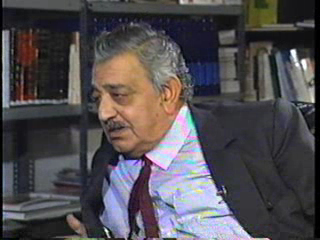But the major powers brushed aside Iran's latest offer to address concerns on its nuclear program and introduced a list of new U.N. sanctions at the UN Security Council. The measures would limit arms sales and allow searches of ships.It also contains further restrictions on Iranian banking.Even as it lists strictures, the sanctions package also "restates the council's commitment to dialogue." China joined in supporting the resolution, but also warmly welcomed Iran's proposal, leaving its attitude toward the deliberations somewhat unclear, diplomats said. Brazil and Turkey, the countries that brokered the deal with Iran, refused to discuss the package.
Under the deal, the Iranian uranium would be stored in Turkey, in exchange of which Iran would receive, within one year, higher-enriched fuel rods to be used in a US-built medical research reactor.
But, although the deal mirrors a swap the Western countries asked Iran to accept last October, the US and some of the other world powers involved in the standoff said the deal failed to ease their concerns that Iran is ultimately intending to develop nuclear weapons capabilities.
Davutoğlu, speaking at a press conference for Turkish and foreign media, said Iran agreed to all the conditions that it had been asked to accept last year. The conditions were that the amount of uranium (enriched 3.5 percent) to be transferred abroad should be 1,200 kilograms, that the uranium should be transferred in one batch and that Iran should transfer its uranium stock in advance for the delivery of 120 kilograms of uranium to be enriched by Russia and France up to 20 percent.
“All the three conditions of the international community have been met. There should be no more speculations about it because these are the conditions conveyed to us,” Davutoğlu said. He also said the deal offers a clear timetable on how it will be implemented: Iran agreed to send 1,200 kilograms of its uranium to Turkey within one month after the proposal was approved by the Vienna Group -- consisting of France, Russia, the US and the International Atomic Energy Agency (IAEA). The uranium will be kept in Turkey for at most 11 months and it will be exchanged by 120 kilograms of uranium enriched up to 20 percent.
Davutoğlu, who said the deal was a result of intense diplomatic efforts and meticulous planning, also announced that Turkey, a non-permanent member of the UN Security Council, would not support proposals for a fourth round of sanctions against Iran if the Western countries agree to push for them despite the deal.
“If sanctions are to be brought back to the table despite all the hard work we did to prevent the emergence of new suspicions, why did we do all this?” he asked. “Sanctions would spoil the positive atmosphere and may provoke the Iranian public, which is very sensitive about the issue. We will not be part of any effort to that effect.





No comments:
Post a Comment